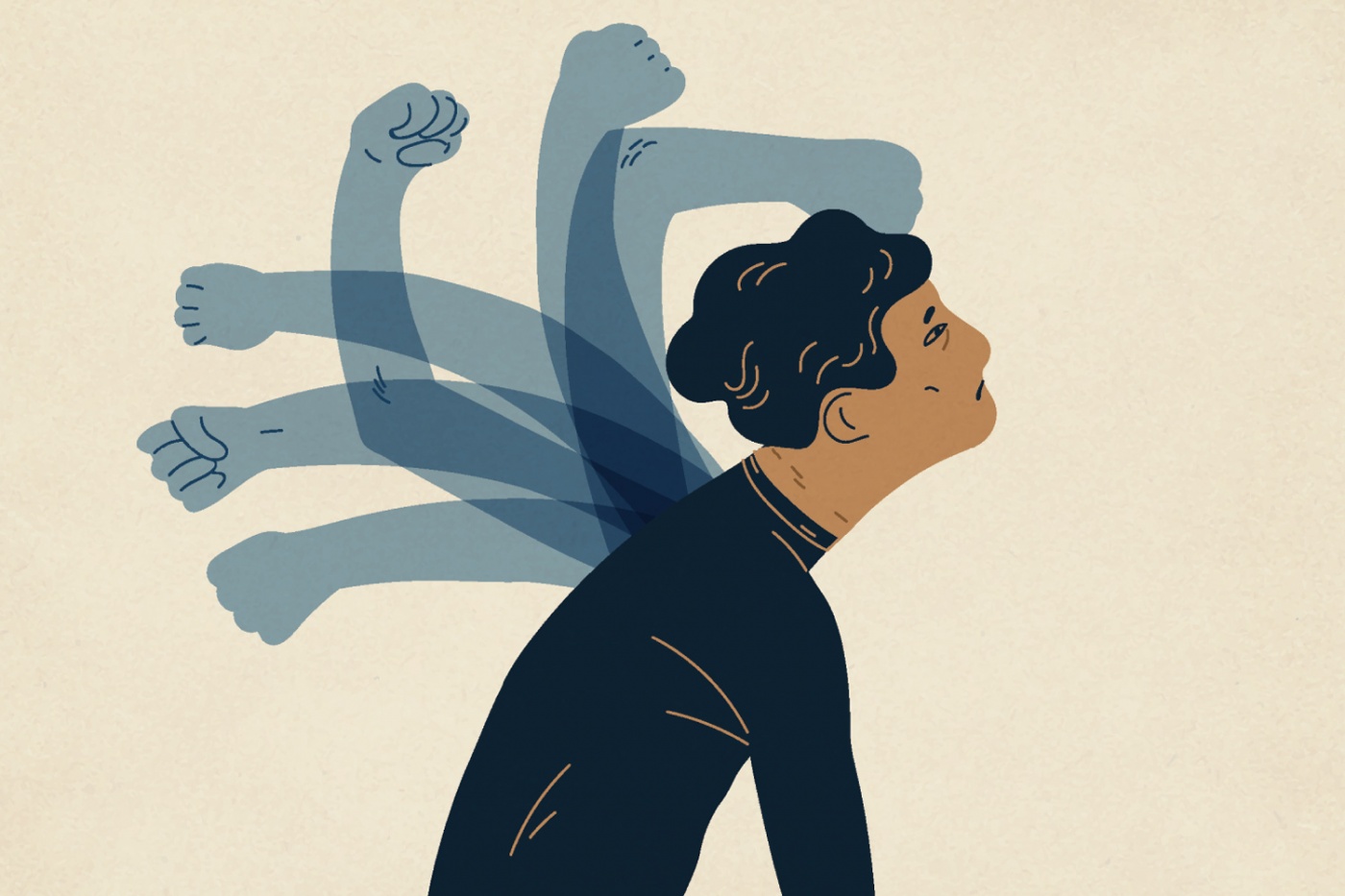Good Pain vs. Bad Pain: Is Persistence Always a Virtue?
Hustler. Type A. Perfectionist. Go-getter. These are apt descriptions for the kind of people who are likely to enjoy and live by books like The Third Door. A friend, who is a corporate lawyer recommended it to me, after his friend (another corporate lawyer) had recommended it to him. I’m confessedly not much of a Type A person. I had that epiphany about myself early on when, days before university finals, I found myself reading novels instead of textbooks.
It was atypical for me, but I inhaled The Third Door, a book detailing the adventures of an 18-year-old who interviews Bill Gates, Lady Gaga, and other wildly successful people (TLDR: a manifesto on go-getting). In my excitement, I told my editor that I would write an article about finding the third door, and competing smart in the rat race to find another way in. Cut to three days later, all my heady ideas had fizzled out like New Year’s Resolutions in February.
Ironically, this story is about finding the way out.
In a way, I’m the worst person to write this. I have acquired a reputation amongst my friends for hanging on to projects and ideas that should’ve died long ago. Not quite the same thing as a “go-getter”, but approximate enough that when I texted a friend about writing an article on “letting go and quitting”, she promptly replied: “That’s funny.” Yet, I’m also in exactly the right place to write about finding your way out of a project or career. Working in a British research university for the last three years, I’ve met too many people who could genuinely benefit from choosing to quit.
At first glance, the option of quitting appears to be a fairly obvious point. But when was the last time you heard anyone talk about quitting without some kind of negation prefixed to it? Countless books, quotes, and songs drum into us inspirational messages of “never giving up”. And our resulting admiration of persistence becomes exemplified even in an ad campaign by Fiverr, an online freelance marketplace. The campaign, called “In Doers We Trust”, displayed prominent, controversial ads proclaiming, “You eat a coffee for lunch,” and “You follow through on your follow through. Sleep deprivation is your drug of choice. You might be a doer.” Capturing the phenomenon in a poignant title, Jia Tolentino wrote that “The gig economy celebrates working yourself to death”. We pride ourselves on our dogged determination, and rightly so, because things worth doing almost always require it. The rarely talked about subtext that is evident in Fiverr’s campaign, however, is that it’s not persistence per se we admire. We don’t hear stories about “run-of-the-mill” persistence, of people doing a sterling job over a 30-year career spanning the highs and lows. Instead, we admire and glamorise persisting no matter what, even if it breaks your body and spirit.
I’ve made many friends and acquaintances uncomfortable by asking, “Why don’t you quit?” and was always met with a scoff or a sigh, accompanied by “It’s too late now”. The answer never changes no matter how long it’s actually been. While it’s easy to fall for the sunk cost fallacy, the key question remains: How you know when to quit? I doubt I’ll have more wisdom to offer than Dean Karmen, known for his invention of the Segway, so I’ll quote his answer to the selfsame question in The Third Door.
“How do you decide when to keep fighting or when to cut your losses?”
“I will give you my ugliest, worst answer…” he replied. I inched forward.
Kamen looked up, took a deep breath, then locked eyes on mine.
“…I don’t know.”
There you have it. You cannot know. I know it feels unsatisfactory and possibly anxiety-inducing, but it can also be liberating. If we accept that there isn’t going to be a single moment of clarity, of certainty, we can act. After all, living is messy business—you cannot know if the person you’re dating is The One, you cannot know if a particular career path is the right one—but every day we make choices about how we live, despite not truly knowing.
Anyone who’s ever worked out would’ve heard of, or if not, experienced the difference between good pain and bad pain. The former goes away after a few days and is “good” because over time, it allows your muscles to grow and adapt to the strain you put on it. The latter is extensive and “bad” because you push your body excessively and risk injury. We learn to listen to our bodies so we can avoid bad pain, but in our professional careers we shove it aside, pushing on despite repetitive strain injury, stressed-induced tinnitus, depression—ailments that plague some of my colleagues.
The modern professional workplace experience reminds me of a scene in Harry Potter and the Chamber of Secrets where the main characters get trapped in the Devil’s Snare. The plant’s tendrils ensnare, binds, and eventually choke anyone who touches them. The instinctive thing anyone would do is to struggle, resist and fight. The catch is that the harder you struggle, the faster and tightly the Devil’s Snare binds you. If, however, you maintain presence of mind and relax, the Devil’s Snare loosens its grip. I tell this story mostly because I’m a Potterhead but in a culture that glorifies unrelenting persistence, we are inculcated with a sense of guilt for giving in—which at times, we struggle with instinctively. Failure is understandable, yet quitting is shameful. Oftentimes, we see pain as weakness and want to conquer it. But unless we pause intently and listen gently for a moment, how can we know if the pain we experience is good or bad?


